Filter by
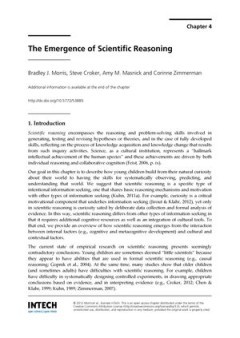
The Emergence of Scientific Reasoning
The Emergence of Scientific Reasoning
- Edition
- -
- ISBN/ISSN
- 9789535108559
- Collation
- -
- Series Title
- -
- Call Number
- -

Children as Caregivers: The Global Fight Against Tuberculosis and HIV in Zambia
The global public health community has focused care and funding on TB and HIV in Zambia, but adult policy-makers, doctors, and humanitarians often ignore children's perspectives as they confront infectious diseases. Well-intentioned practioners fail to realize how children take on active caregiving roles when their guardians become seriously ill. Using ethnographic methods, and listening to the…
- Edition
- -
- ISBN/ISSN
- 9780813588049
- Collation
- -
- Series Title
- -
- Call Number
- 301 HUN c
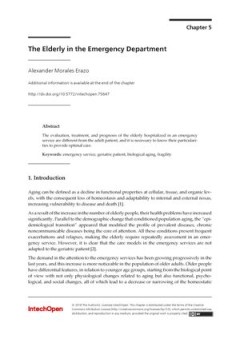
The Elderly in the Emergency Department
The evaluation, treatment, and prognosis of the elderly hospitalized in an emergency service are different from the adult patient, and it is necessary to know their particularities to provide optimal care.
- Edition
- -
- ISBN/ISSN
- 9781789232523
- Collation
- -
- Series Title
- -
- Call Number
- -
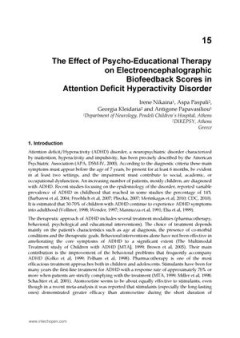
The Effect of Psycho-Educational Therapy on Electroencephalographic Biofeedba…
The Effect of Psycho-Educational Therapy on Electroencephalographic Biofeedback Scores in Attention Deficit Hyperactivity Disorder
- Edition
- -
- ISBN/ISSN
- 9789533078687
- Collation
- -
- Series Title
- -
- Call Number
- -
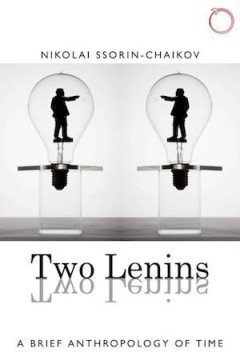
Two Lenins: A Brief Anthropology of Time
Highly innovative and theoretically incisive, Two Lenins is the first book-length anthropological examination of how social reality can be organized around different yet concurrent ideas of time. Nikolai Ssorin-Chaikov grounds his theoretical exploration in fascinating ethnographic and historical material on two Lenins: the first is the famed Soviet leader of the early twentieth century, and th…
- Edition
- -
- ISBN/ISSN
- 9780997367539
- Collation
- -
- Series Title
- -
- Call Number
- 301 SSO t
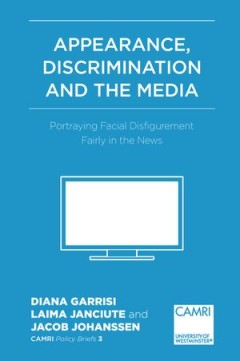
Appearance, Discrimination and the Media
The portrayal of disfigurement in the UK media must change. This policy brief is based on recent research that found a general negative and sensationalised attitude towards disfigurement in the media. Disfigurement is a condition that can affect anyone at any time in life regardless their social or demographic background due to accidents or health conditions or be congenital. In the UK, one in …
- Edition
- -
- ISBN/ISSN
- 9781912656233
- Collation
- -
- Series Title
- -
- Call Number
- -

The Owners of Kinship: Asymmetrical Relations in Indigenous Amazonia
The Owners of Kinship investigates how kinship in Indigenous Amazonia is derived from the asymmetrical relation between an “ownerâ€_x009d_ and his or her dependents. Through a comprehensive ethnography of the Kanamari, Luiz Costa shows how this relationship is centered around the bond created between the feeder and the fed. Building on anthropological studies of the acquisition, distri…
- Edition
- -
- ISBN/ISSN
- 9780997367591
- Collation
- -
- Series Title
- -
- Call Number
- 301 COS o
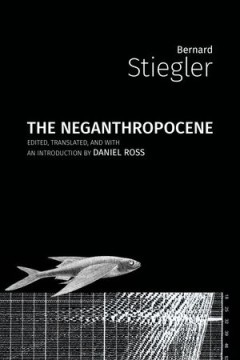
The Neganthropocene
In the essays and lectures here titled Neganthropocene, Stiegler opens an entirely new front moving beyond the dead-end “banality” of the Anthropocene. Stiegler stakes out a battleplan to proceed beyond, indeed shrugging off, the fulfillment of nihilism that the era of climate chaos ushers in.
- Edition
- -
- ISBN/ISSN
- 9781785420481
- Collation
- -
- Series Title
- -
- Call Number
- -

On Kings
In anthropology, as much as in the current popular imagination, kings remain figures of fascination and intrigue. As the cliché goes, kings continue to die spectacular deaths only to remain subjects of vitality and long life. This collection of essays by a teacher and his student — two of the world's most distinguished anthropologists— explores what kingship actually is, histor…
- Edition
- -
- ISBN/ISSN
- 9780986132506
- Collation
- -
- Series Title
- -
- Call Number
- 301 GRA o
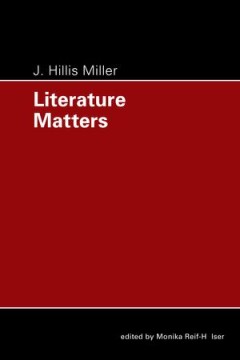
Literature Matters
This new collection of J. Hillis Miller’s essays centres on the question “why and to what end should we read, teach, and spend our time with literary and/or cultural studies?” At a time when electronic media seem to dominate the market completely, and jobs follow the money flows into electronic and technical fields, literary and cultural studies might appear as a decorative addenda but no…
- Edition
- -
- ISBN/ISSN
- 9781785420344
- Collation
- -
- Series Title
- -
- Call Number
- -
 Computer Science, Information & General Works
Computer Science, Information & General Works  Philosophy & Psychology
Philosophy & Psychology  Religion
Religion  Social Sciences
Social Sciences  Language
Language  Pure Science
Pure Science  Applied Sciences
Applied Sciences  Art & Recreation
Art & Recreation  Literature
Literature  History & Geography
History & Geography